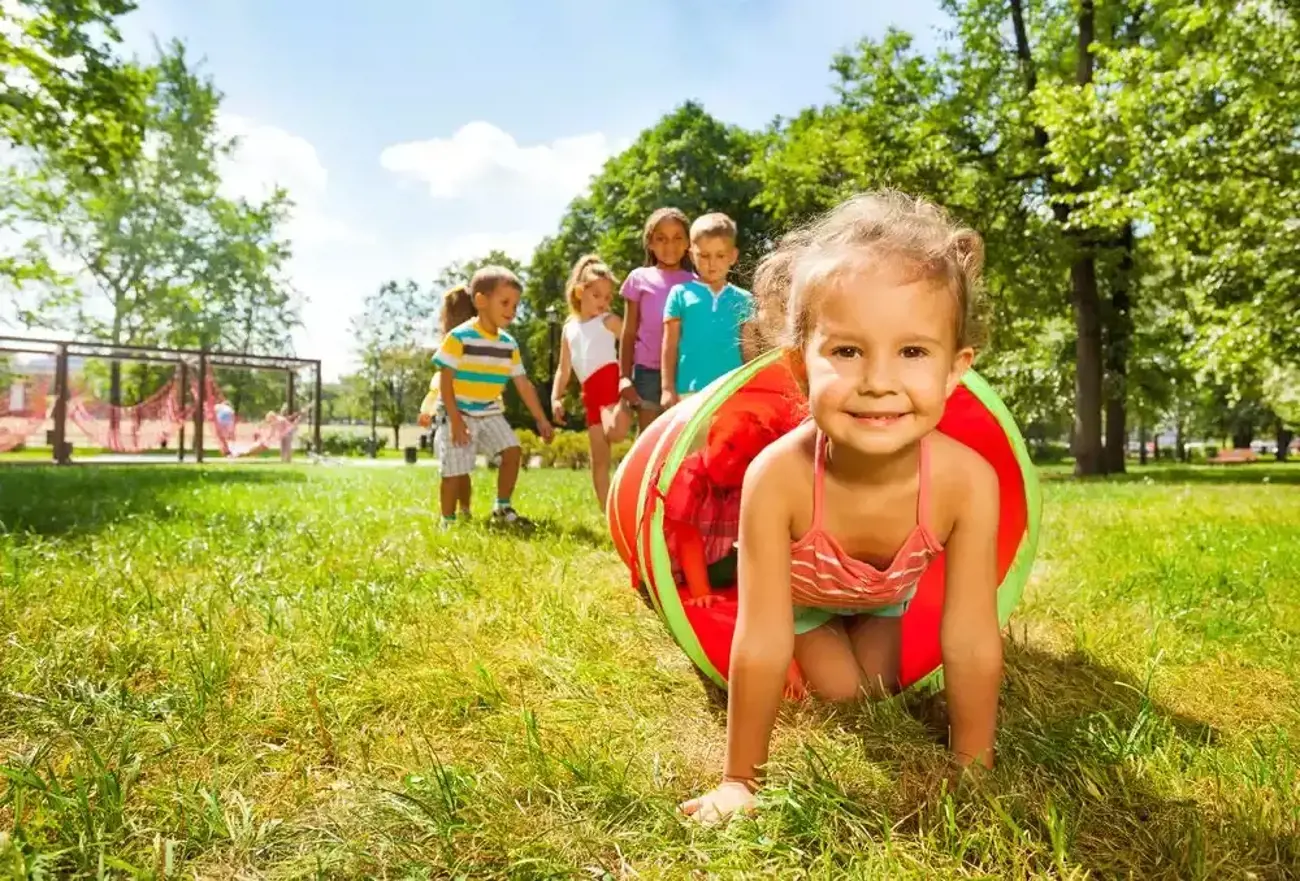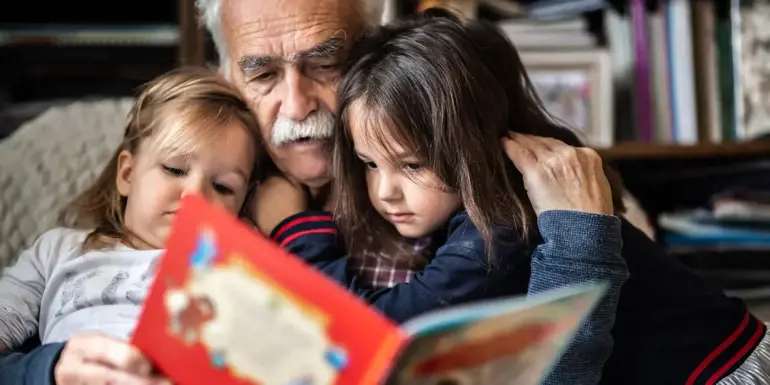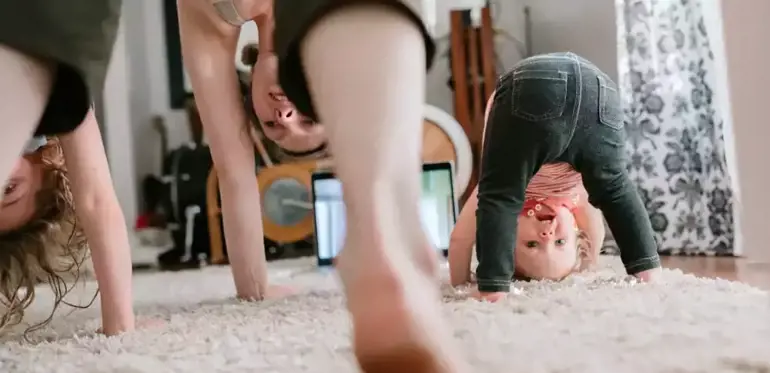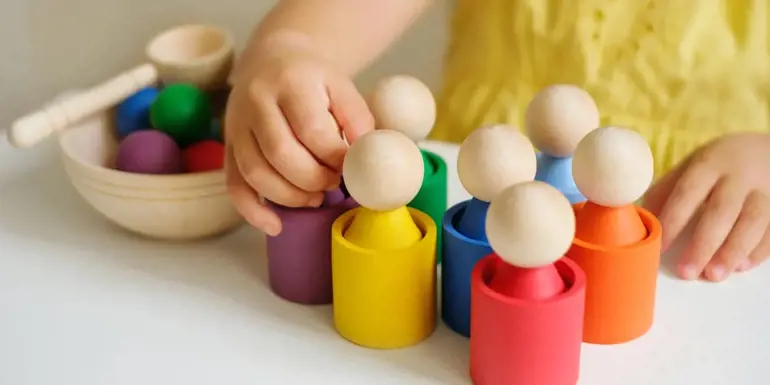Play is a great way for children to amuse themselves and live in the moment, but according to the experts, play offers much more than just fun and games.
Researchers have linked childhood play with adult achievement, so let's see how play can help children understand and experience the world, develop vital skills and possibly even get a good job later in life.
What are the benefits of play?
Whether your child is playing shop or constructing block towers, play is crucial in building the foundations for their physical, social, emotional, and academic learning.
Play helps children develop:
- Fine and gross motor skills, e.g. dexterity and agility
- Creativity
- Emotional intelligence
- Imaginative problem-solving
- Self-regulation
- Empathy
It goes to the core of what makes us human, and education expert, Ken Robinson says that, 'Play is a primary, indeed a primal, way that we learn to understand and experience the world around us.'
Mr Robinson adds, 'The simple act of free, self-initiated play helps unlock a child's innate creativity, imagination, interests and talents. It helps children to uncover who they are, and imparts invaluable skills they will need to possess in the uncertain future they will face tomorrow.'
CEO of The LEGO Foundation, John Goodwin agrees. He says that by encouraging children to play more in their early years we, 'Will equip them to be relevant to the workplace and to society,' especially as jobs become increasingly automated.
What is the science of play?
Although play has casual connotations for children and parents, when it comes to the science of play, experts in the field apply a technical definition to the activity.
They say that play involves specific criteria being met, and Kenneth Rubin, a Professor of Human Development at the University of Maryland, says that play should be:
- 'Intrinsically motivated,' instead of being imposed by parents
- Enjoyable
- Actively engaging
- Happen outside of life's many rules
What types of play benefit young children?
To help children develop physically, socially, emotionally, and cognitively, the experts recommend these five categories of play:
- Physical play, e.g. chasing, jumping and hiding
This helps children develop their gross motor skills (i.e. the big muscle movements needed for actions like crawling, walking, running and swimming). Physical play also develops their perseverance and memory. - Constructive play, e.g. building with blocks and cardboard
This helps kids develop resilience (e.g. when their block tower collapses) and teaches them early reasoning and problem-solving skills (e.g. working out how to build a tower that doesn't topple). - Imaginative play, e.g. dancing, drawing and water play
This lays the foundations for creativity and provides opportunities for children to, 'Express feelings, communicate and experiment with reality.' - Dramatic play, e.g. role-play, puppets, storytelling and dressing up
This kind of play helps youngsters regulate their emotions and build important relationship skills, such as empathy, compassion and negotiation. - Games with rules, e.g. Duck, Duck Goose, Hokey-Cokey and Musical Statues
These games hone children’s motor skills and teach self-regulation. They learn to follow instructions, copy others and play by the rules.
What concerns do play experts have?
Although play has many benefits in the early years and beyond, some experts worry that unstructured, free play is an 'endangered species.'
When it comes to outside play, an Edelman Intelligence survey of 12,710 parents in 10 countries found that 10 per cent of children never play outside. While 56 per cent of respondents said their children spend less than one hour playing outside each day.
Instead of being left to play in their own way, some experts worry that children are being kept busy with a multitude of organised activities (e.g. dance, music and sport), academic work and screen time.
Peter Gray, a Professor of Psychology at Boston University, is concerned that this lack of freedom is taking a toll on children's mental health and failing to give them opportunities to learn critical life skills. While Kathy Hirsh-Pasek, a Professor of Psychology at Temple University, says that, as well as gaining academic knowledge, children also need chances to create, explore, negotiate and generally, 'Learn how to be human.'
Where can parents get some great play ideas?
The Real Play Coalition has lots of play activities for ages two to five, six to 11 and 12+.
Visit Real Play Coalition and tailor the search to your family's needs (e.g. you may be looking for an outdoors activity for your three-year-old that will last for one hour and doesn't requirement equipment).
Play is a vital way to enrich your child's early years and set them up for the future. The Real Play Coalition describes play as, 'Rocket fuel for child development,' so whether your youngster is pretending to be an astronaut, building a Duplo spaceship or drawing a little green alien, you can help them really take off in their life with the power of play.
Reference
World Economic Forum


































